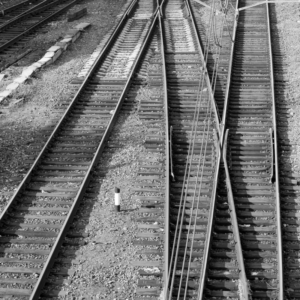At 36 years old, I have been coming more into my identity as a whole within all the many intersectionalities that make up the fantastic tapestry of who I am. Discovering and leaning into my identity as a biracial black queer transman with multiple disabilities has been a journey with ups, downs, twists, and turns. It has been especially challenging having the intersections of my identity separated and viewed differently across my community groups. That’s why I reflected on what my experience as a member of the LGBTQIA+ community has been like, and areas I wish were different, expanded, and more supportive. Here’s three things I came up with that wish the LGBTQIA+ community would address for people like me:
- I wish the LGBTQIA+ community would see me not just as a transman but as a queer, biracial black transman with multiple disabilities and accept and affirm all of who I am. I interact with many different communities. Unfortunately, I have found I am not as authentic in many of those communities as I would like to be. This manifests in social settings for me in various ways, such as not using my communication device when I need it for support during interactions, behaving more guarded around people, and not connecting with others through sharing parts of my story and experiences due to a fear of exclusion that I’ve felt in the past. Sometimes I feel isolated or different from the broader LGBTQIA+ community. It’s also challenging to go to a transgender support group when it is located in a non-accessible location, getting my walker stuck while navigating the layout, and not being acknowledged or skipped over by a facilitator during a meeting. It is tough interacting with my local LGBTQIA+ community when I am the only person of color. These experiences remind me how challenging it is to find support and develop connections when I find myself facing barriers and discrimination relating to my race and disabilities. I wish the LGBTQIA+ community would see me not just as a transman, but as a queer, biracial black transman with multiple disabilities, and accept and affirm all of who I am.
- I wish there were space and support for stories outside of the “wider experience box.” Honestly, this seemed less important to me when I began my transition journey in 2014. I was just so happy to have the opportunity to move toward becoming my authentic self, aligned inside and out. I identified with the stories I heard in a broader sense and was thankful for the support within my local LGBTQIA+ communities during the beginning of my journey, especially for the hope and vision of what the future could be down the road. Due to disability stigma and discrimination, this hope was challenged when I hit barriers receiving hormone therapy. Significant medical and safety complications took gender-affirming surgery off the table for me in 2017. And in 2019, masculine hormone therapy was put on pause due to medical condition complications. I struggled to find support within the LGBTQIA+ community as a transman with disabilities whose transition journey no longer involved hormone therapy and gender-affirming surgery for medical reasons. I struggled to make my own space in which I was allowed to validate and tell my story. I felt lost, alone, and as though I had failed. I wish there were space and support for stories outside of the “wider experience box.”
- I wish there were greater access to safe, affirming trauma support services for transgender individuals and trauma survivors like me. I experienced sexual assault before and after beginning my transition journey. I remember being a trauma survivor attending “women only” support groups and services before transitioning. These programs and services were a lifeline and a safe space for me at that time. After beginning my transitioning journey, I discovered a different experience navigating trauma-related support groups and services as a transman and trauma survivor. As my gender identity was affirmed, I was simultaneously excluded from the “women only” trauma support services that previously included me. The only local groups I could find for men were for perpetrators. I felt like I lost a crucial lifeline in my healing journey following trauma because of my transition journey and the affirmation of my gender identity. I wish there were greater access to safe, affirming trauma support services for transgender individuals and trauma survivors like me.
Did you enjoy this story? Subscribe to our weekly newsletter to find out when new stories are published.
Learn how to join our Writers Cohort here.
Follow us:






